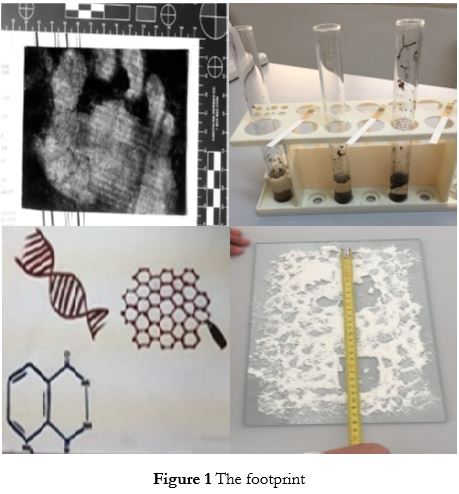
An Enrichment Workshop using Argumentation-Based Forensic Chemistry Activities to Improve the Critical Thinking of Gifted Students
Abstract
Full Text:
DOWNLOAD PDFReferences
Almirall, J. R. (2005). Forensic chemistry education. Analytical Chemistry, 1, 69-72.
Bowell, T., & Kemp, G. (2005). Critical thinking: A concise guide. Taylor and Francis Group.
Cambridge Assessment International Education. (2017). Cambridge International AS & A Level Thinking Skills 9694, Syllabus (2020-2022). Retrieved from https://www.cambridgeinternational.org/Images/415052-2020-2022-syllabus.pdf
Cakir, M. (2011). Üstün yetenekli öğrencilerin iletkenlik ve yalıtkanlık kavramları hakkındaki zihinsel modellerinin incelenmesi [Examining the mental models of gifted students on the concepts of conductivity and insulativity] (Master Thesis, Yüzüncü Yıl University, Institute of Science, Van). Retrieved from https://www.ulusaltezmerkezi.net/ustun-yetenekli-ogrencilerin-iletkenlik-ve-yalitkanlik-kavramlari-hakkindaki-zihinsel-modellerinin-incelenmesi/
Dare, L., & Nowicki, E. (2015). Conceptualizing concurrent enrollment: Why high-achieving students go for it. Gifted Child Quarterly, 59(4), 249-264. https://doi.org/10.1177/0016986215597749
Demircioglu, H., & Vural, S. (2016). Ortak bilgi yapılandırma modelinin sekizinci sınıf düzeyindeki üstün yetenekli öğrencilerin kimya dersine yönelik tutumları üzerine etkisi [The effect of the common knowledge structuring model on the attitudes of gifted students at the eighth grade towards chemistry course]. Hasan Ali Yücel Eğitim Fakültesi Dergisi, 13(1), 49-60.
Erickson, E. (2004). Demystifying data construction and analysis. Anthropology and Education, 35(4), 486-493.
Freeley, A. J., & Steinberg, D. L. (2005). Argumentation and debate: Critical thinking for reasoned decision making. Thomson Wadsworth.
Gercek, Z. (2012). Adli kimya eğitimi [Forensic chemistry training]. Yükseköğretim ve Bilim Dergisi, 2(3), 201-204. https://doi.org/10.5961/jhes.2012.051
Giri, V., & Paily, M. U. (2020). Effect of scientific argumentation on the development of critical thinking. Science & Education, 29, 673-690.
Guion, L. A., Diehl, D. C., & McDonald, D. (2011). Triangulation: Establishing the validity of qualitative studies. EDIS, (8), 3-3.
Jen, E., Gentry, M., & Moon, S. M. (2017). High-ability students’ perspectives on affective curriculum in a diverse, university-based summer residential enrichment program. Gifted Child Quarterly, 61(4), 328-342. https://doi.org/10.1177/0016986217722839
Jen, E., Moon, S., & Samarapungavan, A. (2015). Using design-based research in gifted education. Gifted Child Quarterly, 59(3), 190-200. https://doi.org/10.1177/0016986215583871
Joung, S. (2003). The effects of high-structure cooperative versus low-structure collaborative design on online debate in terms of decision making, critical thinking, and interaction pattern (Doctoral Dissertation, The Florida State University, Florida). Retrived from: https://fsu.digital.flvc.org/islandora/object/fsu%3A181961
Kabataş-Memiş, E., & Çakan-Akkaş, B. N. (2020). ABI approach used in science lessons had improved the critical thinking skills of the experimental group students. Asia Pacific Education Review, 21, 441-453.
Kaya, O. N., & Kilic, Z. (2008). Etkin bir fen öğretimi için tartışmacı söylev [Argumentative discourse for effective science teaching]. Ahi Evran Üniversitesi Kırşehir Eğitim Fakültesi Dergisi, 9(3), 89-100.
Kettler, T. (2014). Critical thinking skills among elementary school students: Comparing identified gifted and general education student performance. Gifted Child Quarterly, 58(2), 127-136. https://doi.org/10.1177/0016986214522508
Netz, H. (2014). Gifted conversations: Discursive patterns in gifted classes. Gifted Child Quarterly, 58(2), 149-163. https://doi.org/10.1177/0016986214523312
Ng, W., & Nicholas, H. (2010). A progressive pedagogy for online learning with high-ability secondary school students: A case study. Gifted Child Quarterly, 54(3), 239-251. https://doi.org/10.1177/0016986209355973
Nussbaum, E. M., & Edwards, O. V. (2011). Critical questions and argument stratagems: A framework for enhancing and analyzing students’ reasoning practices. The Journal of the Learning Sciences, 1-46. https://doi.org/10.1080/10508406.2011.564567
Osborne, J., Erduran, S., & Simon, S. (2004). Enhancing the quality of argumentation in school science. Journal of Research in Science Teaching, 41(10), 994-1020. https://doi.org/10.1002/tea.20035
Renzulli, J. S. (2012). Reexamining the role of gifted education and talent development for the 21st century: A four-part theoretical approach. Gifted Child Quarterly, 56(3), 150-159. https://doi.org/10.1177/0016986212444901
Stake R. E. (1995). The art of case study research. Sage.
Stott, A., & Hobden, P. A. (2016). Effective learning: A case study of the learning strategies used by a gifted high achiever in learning science. Gifted Child Quarterly, 60(1), 63-74. https://doi.org/10.1177/0016986215611961
Subotnik, R. F., Olszewski-Kubilius, P., & Worrell, F. C. (2011). Rethinking giftedness and gifted education: A proposed direction forward based on psychological science. Psychological Science, 12(1), 3-54. https://doi.org/10.1177/1529100611418056
Tuysuz, M., & Tuzun, U. N. (2019). Özel yetenekli öğrenciler için adli kimya eğitimi [Forensic chemistry training for special talented students]. Başkent University Journal of Education, 6(2), 213-224.
Tuzun, U. N., Eyceyurt-Turk, G., Harmanci, A. B., & Ertem, N. (2017). Bilim eğitiminde üstün zekâlı bireylerin düşünce deneyleriyle eleştirel düşünme becerilerinin geliştirilmesine yönelik bir öğretim dizini yapılandırma [Building a teaching directory for the development of critical thinking skills of gifted individuals in science education with thought experiments]. Paper presented at 8th International Education Management Forum, TOBB University, Ankara.
Vural, S. (2010). Yapılandırmacı yaklaşıma uygun geliştirilen etkinliklerin üstün yetenekli öğrencilerin kavramları anlamalarına etkisi: ‘Erime, donma, buharlaşma, kaynama ve yoğuşma’ [The effect of activities developed in accordance with the constructivist approach on gifted students' understanding of the concepts: 'Melting, freezing, evaporation, boiling and condensation'] (Master Thesis, Karadeniz Technical University Institute of Science, Trabzon). Retrieved from: https://tez.yok.gov.tr/UlusalTezMerkezi/tezDetay.jsp?id=msAPF1F-yfNGe4AoVdtJ8A&no=KS9d8ASRfdlnrlES6MQtvA
Walton, D. (2006). Fundamentals of critical argumentation. Cambridge University Press.
West, T. L. (1994). The effect of argumentation instruction on critical thinking skills (Doctoral Dissertation, Southern Illinois University, Chicago).
Yıldırım, A., & Şimşek, H. (2008). Sosyal bilimlerde nitel araştırma yöntemleri [Qualitative research methods in the social sciences]. Seçkin.
Yoon, C-H. (2009). Self-regulated learning and instructional factors in the scientific inquiry of scientifically gifted Korean middle school students. Gifted Child Quarterly, 53(3), 203-216. https://doi.org/10.1177/0016986209334961
Ziegler, A., Stoeger, H., & Vialle, W. (2012). Giftedness and gifted education: The need for a paradigm change. Gifted Child Quarterly, 56(4), 194-197. https://doi.org/10.1177/0016986212456070
Zohar, A., & Nemet, F. (2002). Fostering students’ knowledge and argumentation skills through dilemmas in human genetics. Journal of Research in Science Teaching, 39(1), 35-62. https://doi.org/10.1002/tea.10008
DOI: https://doi.org/10.17509/jsl.v4i1.27570
Refbacks
- There are currently no refbacks.
Copyright (c) 2020 MUSTAFA TUYSUZ, Ummuye Nur Tuzun

This work is licensed under a Creative Commons Attribution-ShareAlike 4.0 International License.


Jl. Dr. Setiabudhi 229 Bandung 40154, West Java, Indonesia










